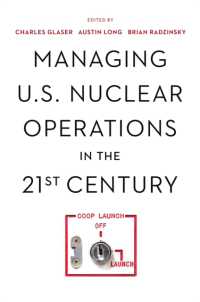Full Description
Thus, in a rare encounter, major voices from the Sciences and the Humanities, from Energy Systems Design, Mechanical Engineering, Theory of Science, Science and Technology Studies, Literary Studies and the Arts, have gathered here to overcome the cultural divide between the technological and the societal dimensions of this global task.







